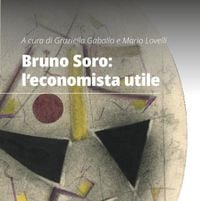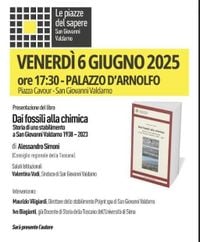On May 30, 2025, the Centro Incontri della Provincia in Cuneo hosted the presentation of the volume "De.Co.: il racconto di un territorio," authored by Tiziana Martino and published by Araba Fenice. This book project, promoted and supported by the Province of Cuneo, aims to highlight the importance of Municipal Denominations (De.Co.) as a tool for protecting and promoting local excellence. Having already been showcased at the Turin Book Fair, the volume offers a vivid narrative of the Cuneo territory through its unique products marked by the De.Co. certification, symbolizing a deep connection between the product and its place of origin.
The event opened with remarks from Luca Robaldo, President of the Province, who emphasized the province's commitment to supporting municipalities and their unique identities. Alberto Cirio, President of the Piedmont Region, underscored how valuing territorial uniqueness is crucial not only to preserving history and traditions but also as a significant economic driver. Regional Councilor Marco Gallo highlighted the power of storytelling, noting that the Granda area is one of the most significant in Italy for food and wine but requires the right narrative to fully capture its essence. He praised Martino's book as an important step in that direction.
Martino herself explained that the book unfolds along five itineraries crossing the province, weaving together history, culture, and gastronomy to paint an authentic and lively portrait of the territory. The volume serves both as a celebration of local heritage and a practical guide to appreciating the unique flavors and stories embedded in the region.
Meanwhile, in Novi Ligure, anticipation is building for the June 12, 2025, presentation of "Bruno Soro: l’economista utile," a volume dedicated to the late Bruno Soro (1945-2024), a respected university professor and public administrator. Curated by Graziella Gaballo and Mario Lovelli and published by Epoké, the book will be available in bookstores and online starting the day of the presentation, which will take place at 6 p.m. in the civic library of via Marconi 66, as part of the "L’estate nel chiostro" cultural series organized by the G. Capurro Municipal Cultural Center.
The event is not only a tribute to Soro’s memory but also a chance to revisit his profound contributions to economics, social justice, and civic engagement almost a year after his passing on July 10, 2024. The book delves into Soro’s multifaceted life, exploring his roles as an economist, academic, public servant, and committed citizen. It features contributions from friends, colleagues, students, and fellow intellectuals, painting a comprehensive portrait of a man who believed that economics should serve the collective well-being.
Born in Tassarolo in 1945 and raised in Novi Ligure, Soro graduated in Economics and Commerce from the University of Genoa in 1970. He began his academic career as an assistant to Professor Vittorio Sirotti, whom he regarded as a mentor. In the 1980s, he served as a municipal councilor and assessor in Novi Ligure. From the 1990s onward, he taught Development Economics and later Economic Policy at the University of Genoa until his retirement in 2015. His civic commitment extended beyond academia; after the devastating 1994 flood in Alessandria, he helped found Orti Sicuro, a volunteer association focused on managing floods and climate change.
Epoké, the independent publisher behind the book, was founded in 2014 and has since published 276 books, supporting over 200 authors and organizing more than 1,000 cultural events across Italy. Their catalog spans academic research, local history, and children’s literature, reflecting a commitment to cultural dissemination and community engagement.
Turning to Tuscany, the town of San Giovanni Valdarno will host the presentation of "Dai fossili alla chimica. Storia di uno stabilimento a San Giovanni Valdarno (1938 – 2023)," a meticulously researched volume by Alessandro Simoni. The event is scheduled for June 6, 2025, at 5:30 p.m. in the council hall of Palazzo d’Arnolfo in piazza Cavour, as part of the cultural series "Le piazze del sapere."
Simoni, a former employee of the factory now known as Polynt, traces nearly a century of industrial history from the plant’s founding in 1938 to the present day. His work stands out for its depth and rich archival research, offering an authentic contribution to the social and economic history of the region. The Polynt plant has long been a cornerstone of San Giovanni Valdarno’s economy, alongside other historic industries such as glass processing, ceramics, and iron and steel production.
The presentation will feature speeches by Valentina Vadi, Mayor of San Giovanni Valdarno; Maurizio Viligiardi, director of Polynt spa; and Ivo Biagianti, professor of contemporary history at the University of Siena. Simoni will share insights into his research journey and the motivation behind this project, which aims to fill a significant gap in the local historical narrative.
As Simoni highlighted, this book is not merely a collection of memories but a rigorous historical investigation that restores dignity and memory to an essential segment of local heritage often overlooked. The event will also prompt reflection on the importance of historical memory, the role of labor in shaping collective identity, and how institutions and scholars can help preserve and promote cultural heritage.
These three cultural events, spanning from Piedmont to Tuscany, underscore the vital role of storytelling, research, and community engagement in preserving local identities and histories. Whether through the celebration of unique local products, the remembrance of a committed economist’s legacy, or the detailed chronicling of an industrial landmark, each project enriches the cultural fabric of its region and invites residents and visitors alike to deepen their connection to place and history.






